Big move for GMC
New location will offer more research bang for mineral exploration buck
Last updated 1/18/2015 at Noon
It's official! The Alaska Geologic Materials Center (GMC) is set to make the long-awaited move to its new, larger Anchorage quarters on April 6, weather permitting.
The center, a unit of the Alaska Division of Geological & Geophysical Surveys within the state Department of Natural Resources, is the repository for geologic materials collected from across Alaska, and then catalogued, stored and studied.
Visitors to the center, primarily representative of companies, state and federal agencies, and academia, examine hardrock core, petroleum cuttings and miscellaneous rocks along with related maps and can even cut small samples to take with them.
Known colloquially as a "library for rocks," the GMC is maintained and managed by the State of Alaska with support from various cooperating government agencies including the U.S. Geological Survey, federal bureaus of Land Management and Ocean Energy Management, Alaska Oil and Gas Conservation Commission and private industry.
The center was established in 1984, but has long outgrown its original 6,000-square-foot building in Eagle River, overflowing since the early 1990s into 60 substandard storage containers with no heat or lighting to house hundreds of thousands of rock samples.
After a couple of delays in recent months, the GMC is set to move this spring to a refurbished 110,000-square-foot climate-controlled space that formerly housed a Sam's Club warehouse. The state spent two years and $24.5 million to purchase and renovate the building. It had originally planned to spend nine years and nearly $45 million to build a new facility for the repository.
"That's going to be an unbelievable facility. It will lay out Alaska's mineral wealth for the world," DNR Deputy Commissioner Ed Fogels told Mining News Jan. 13.
The move could take up to 12 weeks to complete.
GMC curator Ken Papp said the entire collection of more than 100,000 boxes of rocks will initially fill 30,000-40,000 square feet, or about one-third of the new location, depending on the size of several new donations of core expected before the move. This should leave ample space for future growth, he said.
Goldrich Mining Corp., for example, recently donated 22 pallets of hard-rock core from its Chandalar mining property in northern Alaska. The contribution to the GMC included 14,863.5 feet of core from 25 boreholes drilled in 2011.
By volume, the collection comprises 14 million feet of core and samples. Most of the material comes from oil and gas exploration and production wells, but the center also boasts quite a few hardrock samples from 1,800 exploration holes, along with coal, geothermal and other types of minerals, according to Papp who became curator of the GMC in 2009.
Among the latter group are samples of coal seams encountered in oil and gas exploration in central Alaska.
"We have 800 or so boxes of coalbed methane core from five different wells," Papp said.
In addition, the GMC boasts core from the Mt. Spur geothermal project, McCutcheon Volcano and two miles of the West Forelands formation, plus samples from before and after underground nuclear tests on Amchitka Island between 1965 and 1971.
Climate-controlled nirvana
Hampered by lack of space and inadequate storage, the GMC has been under-utilized in the past, but Papp hopes that will change when the repository settles into its new quarters in Anchorage.
He said retrieving core from the unheated storage containers in February is a miserable exercise in which the center's workers have had to take extraordinary steps such as thawing frozen padlocks and unsticking icy core boxes to get to the samples. In addition, thousands of core boxes at the center have deteriorated over time, and the center has been busy re-boxing them in preparation for the move.
"In these freeze-thaw conditions, it's really cumbersome and awkward handling the samples, and the rocks degrade over time," Papp explained. "We are really looking forward to storing the samples in a heated warehouse."
Modern sophisticated analysis of archived samples is widely recognized as a cost-effective alternative to the tremendous expense of core drilling and resampling in the field. One foot of core can provide critical information to an exploration or development company, potentially leading to discovery and ultimately to millions of dollars in lease, tax, and royalty revenue to the State and hundreds of local jobs, according to the GMC.
One company working in Alaska, re-analyzed samples taken previously from a property and found visible gold in the core, Papp said. This led to the company revising its exploration plan and, "as a result, that company was able to produce a significant amount of gold," he added.
The ability to provide baseline geologic data and access to samples from prior exploration efforts is a critical part of investing in the future and crucial for researchers to improve on existing data and obtain a better understanding of our natural resources, GMC says on its website.
One mining company's exploration team recently saved several hundred thousand dollars just by examining maps from previous exploration showing trace elements of geochemistry. The explorer was able to pinpoint areas of interest for future exploration, Papp said.
The geologic trove at GMC is also critical for resource management in the state, as the information it provides likely will help discover new or additional oil and gas reserves, regions of viable geothermal energy, or new mineral prospects, as they have done in the past.
Alaska's ongoing large rare earth elements project initiated several years ago soon benefited from research at the GMC.
"The re-analysis of old BLM pulp outcrop samples archived at the center has been instrumental in moving that project forward," Papp observed.
The center also archived numerous boxes of core from the Bokan Mountain property in Southeast Alaska where much interest in REE has centered in recent years.
Private viewing rooms
Of the 300 or so visitors to the GMC in 2014, only 7 percent represented mining companies, despite the substantial potential savings in exploration spending that the center offers the industry. According to the Alaska Resource Development Council, some $180 million was spent in 2013 on exploration for Alaska's valuable minerals.
While miners showed scant interest in the center last year, Papp said the GMC typically attracts more visitors from the sector. On average, about half of the center's visitors come from the oil and gas industry, with the remainder divided among mining companies, academia and federal and state agencies.
In addition to core, samples, maps and other data, the new facility will offer a 2,400-square-foot main viewing area as well as three private 800-square-foot viewing rooms where companies can examine samples in privacy.
"We provide the company with a key card to the lock on one of three private rooms," Papp said. "And we have noise-dampening materials engineered into the walls and doors of these rooms."
Papp said users can hang up their maps and data logs on magnetized sections of the walls within the rooms and leave out samples and other materials without fear of snooping when they step away for short periods.
"You will be able lock the doors and to walk down the halls and only hear muffled sounds coming from within the rooms," he added.


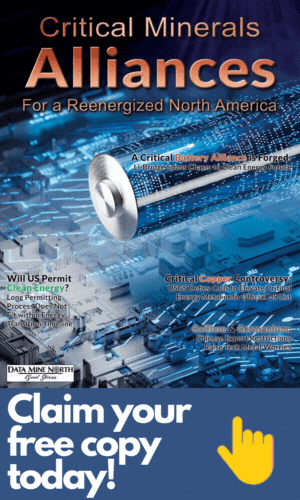
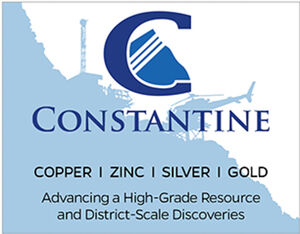
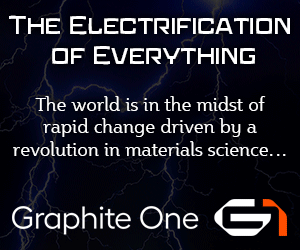
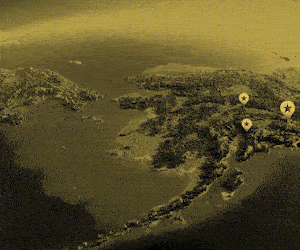
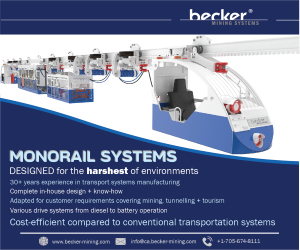
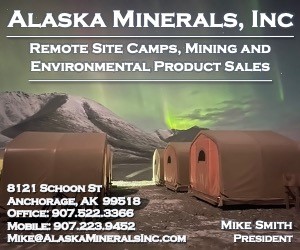
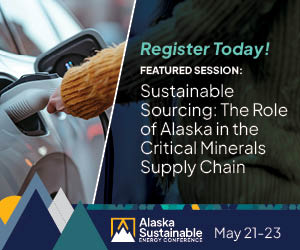
Reader Comments(0)